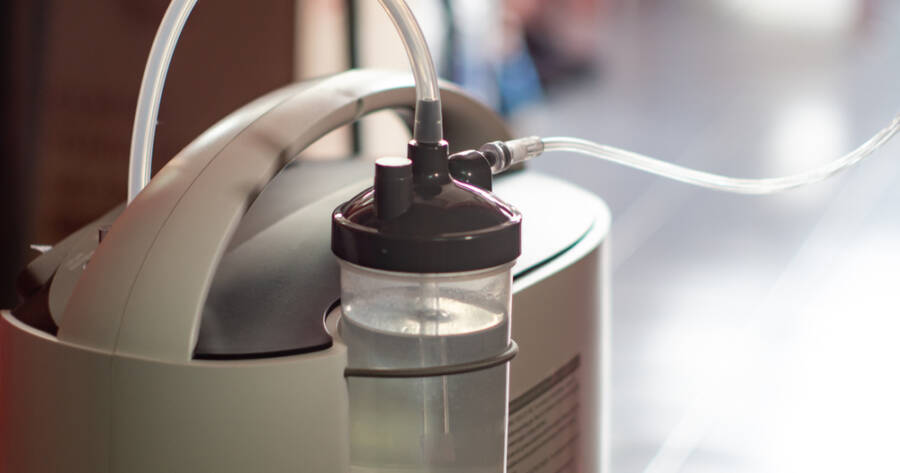For individuals requiring oxygen therapy, portable oxygen concentrators (POCs) offer the flexibility and freedom to maintain an active lifestyle. These compact, battery-operated devices provide a reliable oxygen supply while enabling users to go about their daily activities. Understanding how Medicare can assist in accessing POCs could alleviate associated costs and enhance quality of life. Here we delve into the essentials of portable oxygen concentrators and outline how Medicare coverage may help meet your oxygen therapy needs.
Understanding Portable Oxygen Concentrators
Portable oxygen concentrators are innovative medical devices designed to extract oxygen from the ambient air, concentrating it for patient use. Unlike traditional oxygen tanks, POCs are lighter and more convenient, making them ideal for travel and mobility. Their compact design allows users to maintain independence while enjoying enhanced mobility, making it easier to engage in everyday activities.
These devices typically feature adjustable settings to suit individual respiratory requirements. Some models offer continuous flow settings, while others provide pulse dose options, catering to different oxygen needs. The variety of available models ensures that patients can choose a POC that aligns with their lifestyle and medical condition. Understanding the functionality and specifications of various models helps in selecting the most suitable option for personal needs.
Medicare’s Role in Oxygen Therapy
Medicare provides coverage for various aspects of oxygen therapy under its Durable Medical Equipment (DME) category, which includes portable oxygen concentrators. Medicare Part B generally covers medically necessary services and supplies, including oxygen equipment and accessories, when prescribed by a healthcare provider. This coverage is contingent on meeting specific eligibility criteria and obtaining appropriate documentation from a healthcare professional.
To qualify for Medicare coverage, individuals typically need to demonstrate low blood oxygen levels through specific tests conducted by their doctor. Meeting these requirements substantiates the medical necessity for oxygen therapy, making it possible to access coverage. Understanding the conditions of coverage is crucial for ensuring access to POCs through Medicare, and liaising with healthcare providers can facilitate the requisite documentation.
Accessing Medicare-Covered Portable Oxygen Concentrators
Navigating the process of obtaining Medicare-covered POCs involves several steps and adherence to guidelines. First, beneficiaries should confirm their eligibility for Medicare Part B, which provides coverage for medically necessary equipment. This confirmation enables individuals to engage with DME suppliers approved by Medicare, ensuring compliance with program requirements.
Accredited DME suppliers play a vital role in furnishing the prescribed oxygen equipment. These suppliers assist in submitting necessary paperwork to Medicare, determine specific coverage inclusions, and facilitate equipment delivery. Working collaboratively with a reputable supplier streamlines the process of acquiring a POC, aligning beneficiary needs with regulatory expectations.
Evaluating Cost Implications
Medicare coverage typically extends to 80% of the approved cost for POCs, leaving beneficiaries responsible for the remaining 20%, along with the annual deductible. Awareness of these financial responsibilities helps in anticipating potential out-of-pocket expenses. Exploring supplementary insurance options, such as Medigap policies, could further assist in offsetting residual costs.
Additionally, it’s worth considering the long-term rental agreements that Medicare establishes with DME providers, generally covering equipment over a five-year period. These contracts provide access to ongoing equipment services, including maintenance and replacements if necessary. Understanding the financial commitments associated with POCs ensures informed decision-making and aligns expectations with available resources.
Addressing Potential Challenges
While Medicare coverage offers significant assistance, beneficiaries may encounter certain challenges throughout the acquisition process. Not all POC models may be covered, emphasizing the need to verify compatibility with Medicare’s criteria. Consulting with healthcare providers for precise recommendations assists in selecting approved models that meet individual requirements.
Moreover, continuous communication with suppliers and Medicare representatives is vital for navigating any potential issues during equipment acquisition or usage. Should complications arise, such as equipment malfunction or service questions, maintaining open lines of communication ensures prompt resolutions. Collaborating with all stakeholders fosters a cohesive effort in supporting beneficiaries’ oxygen therapy needs.
Learn More Today
Accessing portable oxygen concentrators through Medicare can significantly enhance the quality of life for individuals requiring oxygen therapy. By understanding coverage criteria and engaging with accredited suppliers, beneficiaries can access these devices with greater ease. Evaluating cost implications and addressing any potential challenges ensures seamless integration of POCs into therapy regimens.
Embracing Medicare’s support, patients can enjoy the freedom of mobility provided by portable oxygen concentrators. For further assistance, consult healthcare providers and Medicare representatives to explore available resources and programs designed to meet your unique needs. With informed decision-making and strategic planning, individuals can harness the benefits of POCs to improve their respiratory health and overall well-being.





